
Bastos: The Heartbeat of Yaoundé
Bastos is an upscale neighbourhood in Yaoundé, Cameroon. It is known for its vibrant mix of residential, diplomatic, and commercial establishments. Nestled in the heart of the city, Bastos offers visitors a unique blend of modernity and tradition, making it a must-see for anyone exploring Yaoundé. Strolling through Bastos, you will encounter a variety of international embassies and high-end residences, reflecting the area’s cosmopolitan flair. The streets are lined with lush greenery, providing a serene atmosphere amidst the bustling city life. Many expatriates call Bastos home, adding to its diverse cultural tapestry. Bastos is also a culinary haven, boasting numerous restaurants and cafes that serve both local and international cuisine. From chic coffee shops to elegant dining establishments, you will find a place to suit your palate. Don't miss the chance to try local Cameroonian dishes, which are rich in flavor and tradition. Shopping in Bastos is another delightful experience. The neighbourhood features a range of boutiques and markets where you can find everything from high-end fashion to unique local crafts. Art lovers will appreciate the various galleries showcasing Cameroonian and African art. For nightlife enthusiasts, Bastos does not disappoint. The area is home to lively bars, clubs, and entertainment venues where you can experience the vibrant Cameroonian music and dance scene. Whether you want to relax with a drink or dance the night away, Bastos offers plenty of options. In summary, Bastos is a dynamic and welcoming neighbourhood that encapsulates the spirit of Yaoundé. Its diverse offerings make it an ideal destination for tourists looking to experience the best of Cameroon's capital city.
Local tips in Bastos
- Visit the local markets early in the morning for the freshest produce and unique finds.
- Try traditional Cameroonian dishes like Ndolé and Poulet DG at local restaurants.
- Take a leisurely walk through the leafy streets to fully appreciate the neighbourhood's serene atmosphere.
- Check out local art galleries to discover contemporary Cameroonian art.
- For nightlife, head out around 10 PM when the bars and clubs start to come alive.
Bastos: The Heartbeat of Yaoundé
Bastos is an upscale neighbourhood in Yaoundé, Cameroon. It is known for its vibrant mix of residential, diplomatic, and commercial establishments. Nestled in the heart of the city, Bastos offers visitors a unique blend of modernity and tradition, making it a must-see for anyone exploring Yaoundé. Strolling through Bastos, you will encounter a variety of international embassies and high-end residences, reflecting the area’s cosmopolitan flair. The streets are lined with lush greenery, providing a serene atmosphere amidst the bustling city life. Many expatriates call Bastos home, adding to its diverse cultural tapestry. Bastos is also a culinary haven, boasting numerous restaurants and cafes that serve both local and international cuisine. From chic coffee shops to elegant dining establishments, you will find a place to suit your palate. Don't miss the chance to try local Cameroonian dishes, which are rich in flavor and tradition. Shopping in Bastos is another delightful experience. The neighbourhood features a range of boutiques and markets where you can find everything from high-end fashion to unique local crafts. Art lovers will appreciate the various galleries showcasing Cameroonian and African art. For nightlife enthusiasts, Bastos does not disappoint. The area is home to lively bars, clubs, and entertainment venues where you can experience the vibrant Cameroonian music and dance scene. Whether you want to relax with a drink or dance the night away, Bastos offers plenty of options. In summary, Bastos is a dynamic and welcoming neighbourhood that encapsulates the spirit of Yaoundé. Its diverse offerings make it an ideal destination for tourists looking to experience the best of Cameroon's capital city.
Iconic landmarks you can’t miss
Cameroon Reunification Monument
Discover Cameroon's history at the Reunification Monument in Yaoundé, a symbol of unity and cultural heritage.

Bois Sainte Anastasie
A tranquil urban park in Yaoundé with gardens, art, and a relaxing riverside atmosphere. Perfect for a peaceful escape.
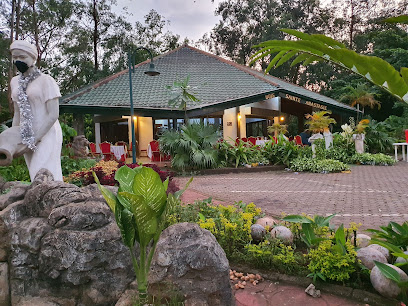
Entrée Palais des Congrée
Enter Yaoundé's premier conference center, a hub for major events with panoramic city views and rich history.
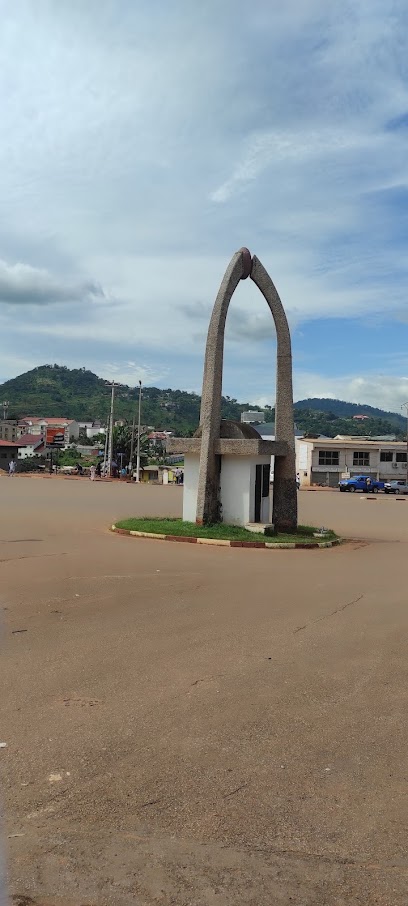
Statue of Charles Atangana
A historical landmark in Yaoundé honoring Charles Atangana, a paramount chief during Cameroon's colonial period, reflecting the nation's heritage.
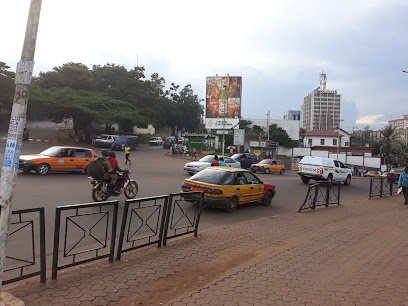
I love my country Cameroon round about
A vibrant landmark in Yaoundé, the 'I Love My Country Cameroon' Roundabout celebrates national pride with its sculptures and artistic design.
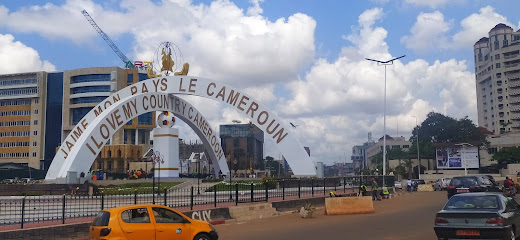
Monument of Colonel Leclerc
A tribute to Colonel Leclerc, symbolizing Cameroon's allegiance to Free France during WWII, offering a glimpse into its colonial past.
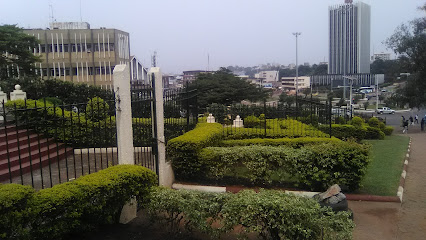
Independence Square
Discover Cameroon's heritage at Independence Square in Yaoundé, a vibrant landmark with monuments, history, and cultural experiences.
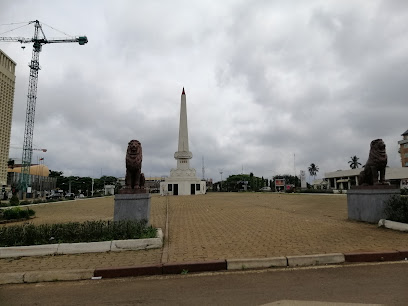
Monument j'aime mon pays
Discover the heart of Cameroon at the Monument J'aime Mon Pays, a symbol of unity and national pride in Yaoundé.
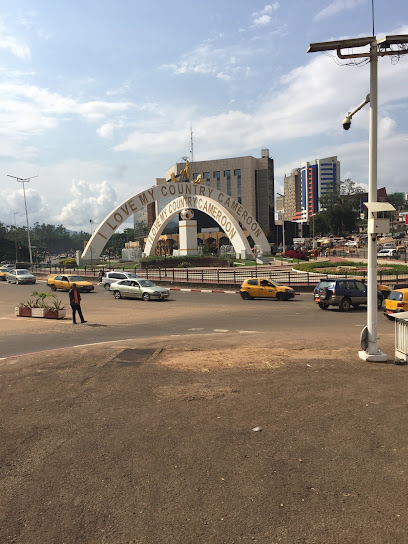
Monument Patriote
Discover Cameroon's national pride and historical journey at the Monument Patriote in Yaoundé.
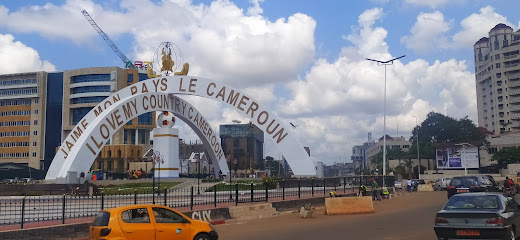
MONUMENTS EN HOMMAGE AUX SOLDATS MORTS POUR LA PATRIE
A place for remembrance and reflection, honoring the soldiers who died for Cameroon in a tranquil park setting in Yaoundé.
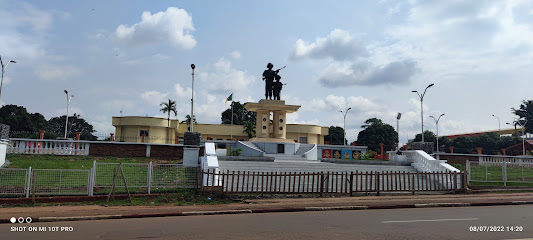
Unmissable attractions to see
WONDERLAND
Discover WONDERLAND in Yaoundé, a vibrant playground perfect for kids aged 1 to 10, where laughter and joy fill the air amidst lush greenery.
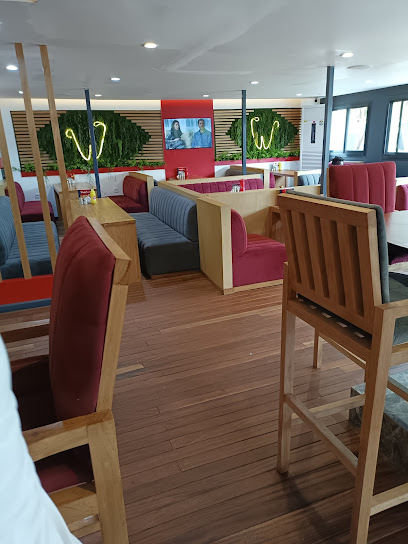
Rond Point Bastos
Discover tranquility at Rond Point Bastos, a lush park in Yaoundé, perfect for relaxation and immersing in local culture amidst nature.

A & l plac
Discover the vibrant heart of Yaoundé at A & L Place, where culture meets cuisine in an unforgettable experience.
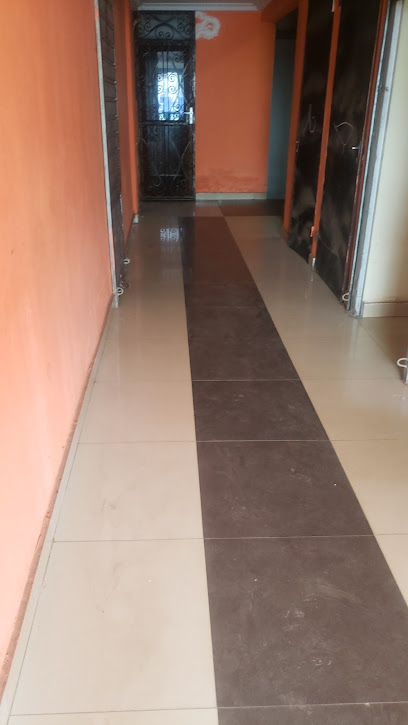
Rond point
Experience the vibrant culture and daily life at Rond Point, the bustling heart of Yaoundé, where locals and tourists come together.
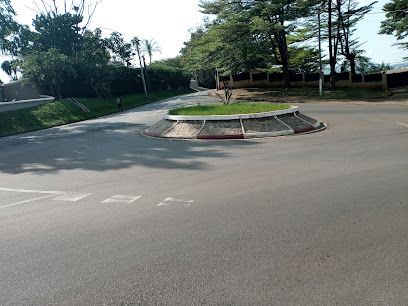
Essential places to dine
Istanbul Turkish Restaurant
Discover authentic Turkish flavors at Istanbul Turkish Restaurant in Yaoundé - where every dish tells a story.
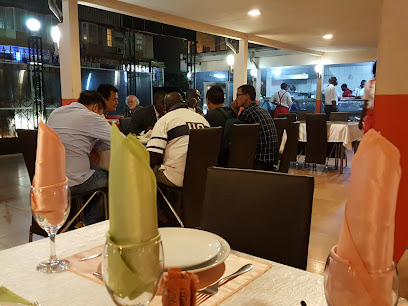
Boukarou Lounge
Savor exquisite local and international dishes at Boukarou Lounge in Yaoundé – a culinary haven blending tradition with modern flair.
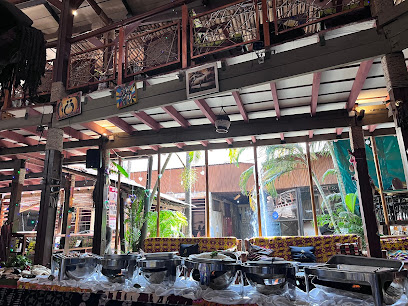
Socrat Restaurant
Discover authentic Cameroonian flavors at Socrat Restaurant in Yaoundé – where tradition meets culinary excellence.
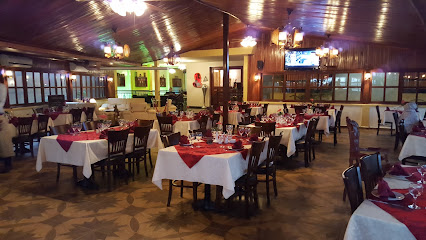
La Salsa Restaurant
Discover authentic Cameroonian flavors at La Salsa Restaurant in Yaoundé, where every dish tells a story.
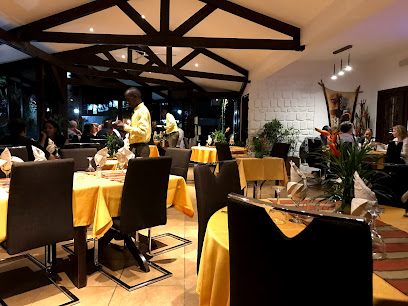
Cosy Pool
Experience the finest French cuisine in Yaoundé at Cosy Pool, where elegance meets exceptional culinary artistry.
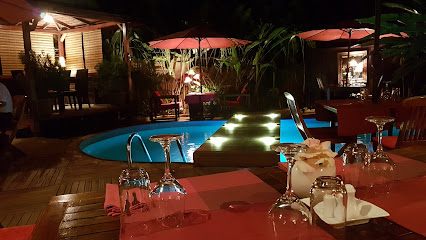
MASKS Resto Bar
Discover MASKS Resto Bar in Yaoundé: A vibrant destination offering grilled delights, Lebanese specialties, and exquisite cocktails in an inviting atmosphere.
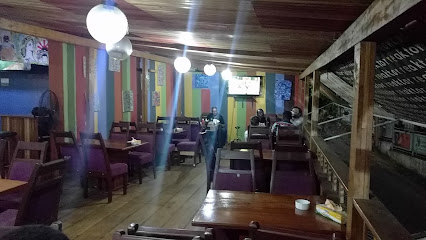
Route 66 Bar & Grill Bastos Yaounde
Discover delicious American cuisine at Route 66 Bar & Grill in Yaoundé—a perfect blend of bistro charm and lounge vibes.
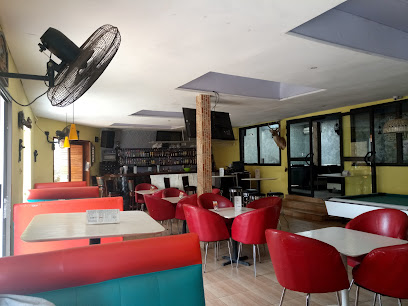
Tassa
Discover Tassa in Yaoundé: A delightful blend of local flavors, exquisite cocktails, and vibrant ambiance perfect for every traveler.
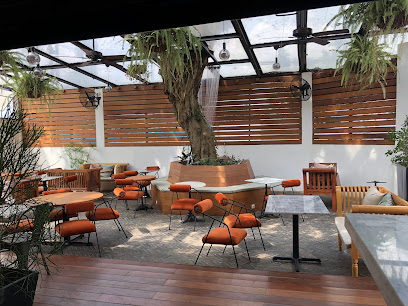
Restaurant african queen, Yaoundé (Bastos)
Savor authentic African cuisine in Yaoundé's vibrant Bastos district with live music, cocktails, and unforgettable experiences.
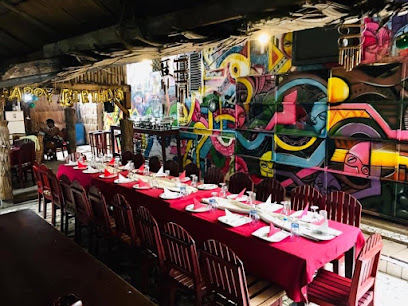
CRUSH
Experience exquisite dining at CRUSH in Yaoundé – where local flavors meet international cuisine in an inviting atmosphere.
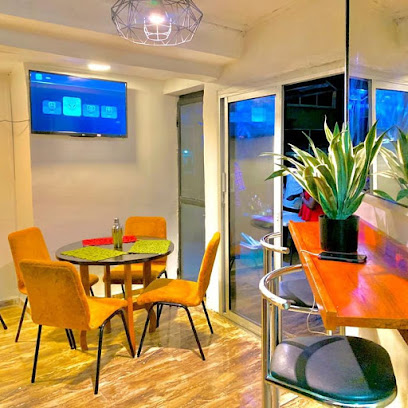
Markets, malls and hidden boutiques
Alex Vip-shopping Yaoundé
Experience the essence of Yaoundé's fashion at Alex Vip-shopping, where style meets local culture in an inviting setting.
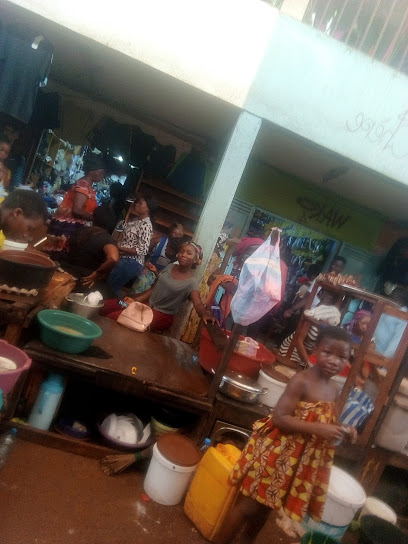
Lewisco Shopping Center
Explore the vibrancy of Native American craftsmanship at Lewisco Shopping Center in the heart of Yaoundé, where culture meets commerce.
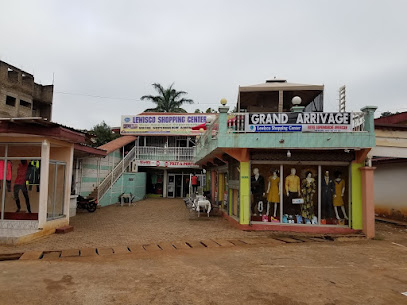
Cacao shop
Experience the best of health and indulgence at Yaoundé's Cacao Shop, where every bite is a step towards wellness and delight.
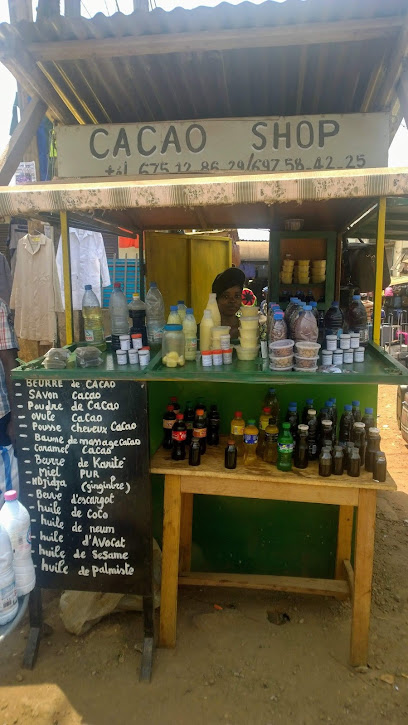
Lacoste Yaoundé
Explore Lacoste Yaoundé for stylish clothing and accessories, embodying modern fashion in the heart of Cameroon.
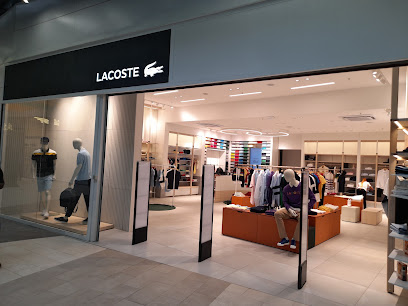
AMAZONE STYLE- BRIQUETERIE-
Discover unique fashion accessories at Amazone Style in Yaoundé, where local craftsmanship meets contemporary style.
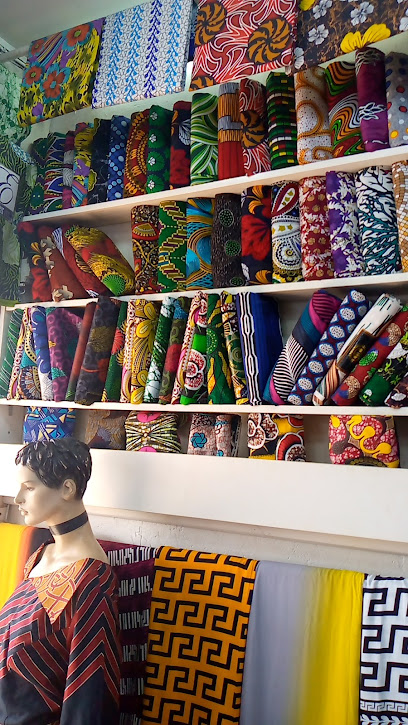
Myriam Boutique
Discover the essence of Cameroonian fashion at Myriam Boutique, a charming clothing store in the heart of Yaoundé offering unique styles and quality craftsmanship.
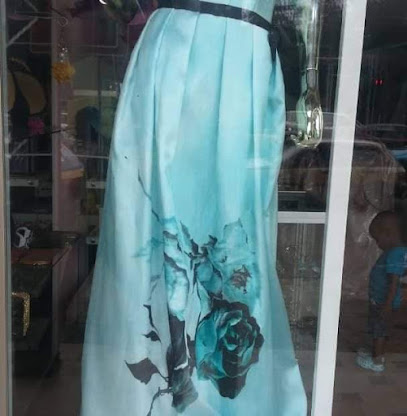
SEYO Design House
Explore unique fashion at SEYO Design House, a premier dress store in Yaoundé, blending local craftsmanship with contemporary styles.
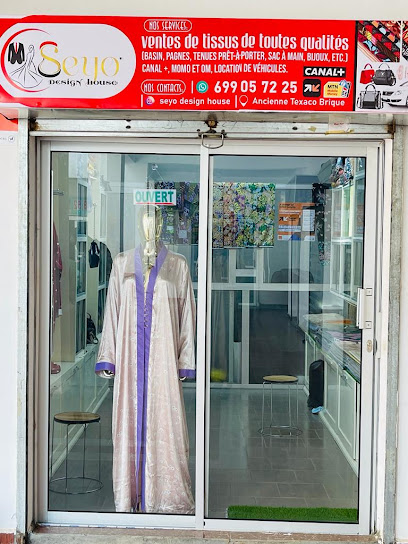
Bastos
Explore Bastos in Yaoundé for unique gifts and authentic Cameroonian crafts, perfect for souvenirs and local artistry.

361 Degrees
Discover contemporary fashion at 361 Degrees in Yaoundé, where local craftsmanship meets modern style in a vibrant shopping atmosphere.

Joy's Boutique
Explore Joy's Boutique in Yaoundé for a unique shopping experience filled with local crafts, souvenirs, and everyday essentials.

Essential bars & hidden hideouts
Black & White Sensation (Bastos)
Experience a sophisticated nightlife at Black & White Sensation in Quartier Bastos, Yaoundé, with exquisite drinks and a vibrant ambiance.
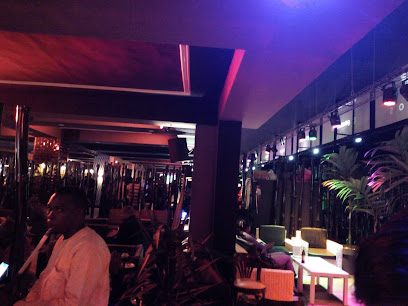
MASKS Resto Bar
Discover the culinary delights of MASKS Resto Bar in Yaoundé, offering grilled specialties, refreshing cocktails, and a lively atmosphere.
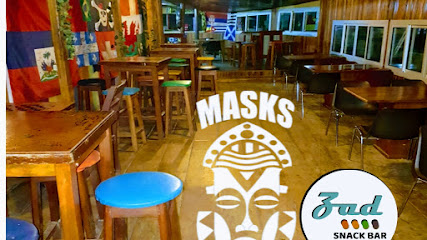
Circle Club
Discover the vibrant nightlife at Circle Club, Yaoundé's premier lounge with live music, delicious drinks, and a lively atmosphere.
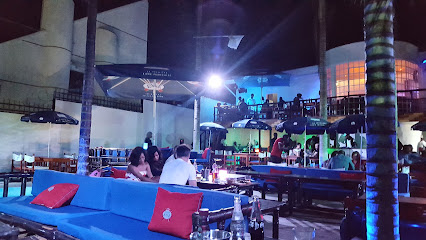
Route 66 Bar & Grill Bastos Yaounde
Savor the best of American cuisine in the vibrant atmosphere of Route 66 Bar & Grill in Yaoundé, where every meal is a celebration.
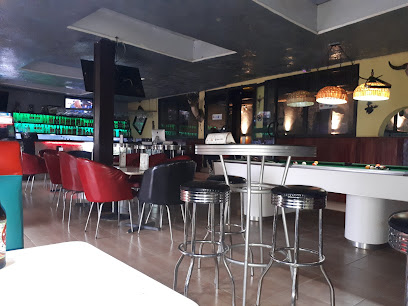
Tonton Bar
Experience the vibrant energy of Tonton Bar in Yaoundé, where local culture meets refreshing drinks in a lively atmosphere.
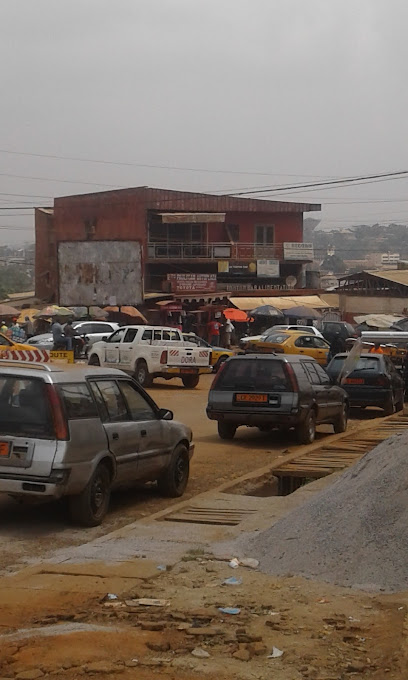
Le Summum
Discover the vibrant allure of Le Summum, a stylish lounge in Yaoundé, perfect for enjoying drinks, music, and local flavors.
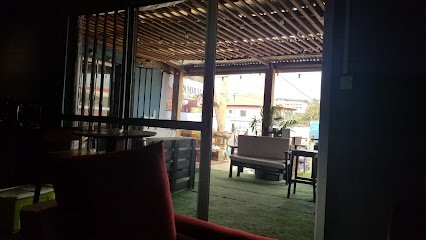
THE RITZ LOUNGE
Experience the vibrant nightlife of Yaoundé at The Ritz Lounge, where refreshing drinks and welcoming atmosphere await you.
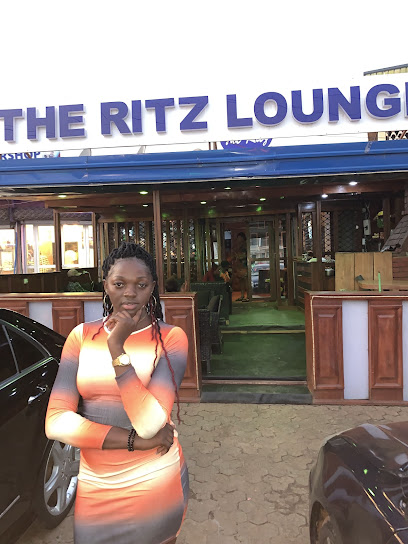
IL A Fallu Du Temps Bar
Discover the vibrant atmosphere and local flavors at IL A Fallu Du Temps Bar in the heart of Yaoundé, a perfect blend of relaxation and culture.
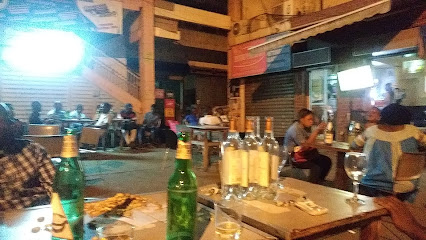
The House - Lounge bar
Experience the vibrant nightlife of Yaoundé at The House, a chic lounge bar known for its stylish ambiance and crafted cocktails.
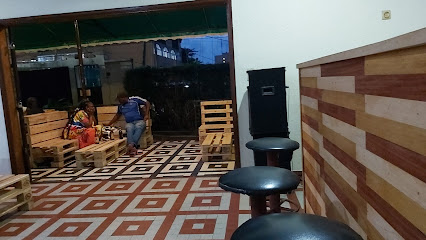
Le Balcon-Terasse Bastos
Discover the lively ambiance and refreshing drinks at Le Balcon-Terasse Bastos, a top bar destination in Yaoundé's Quartier Bastos.
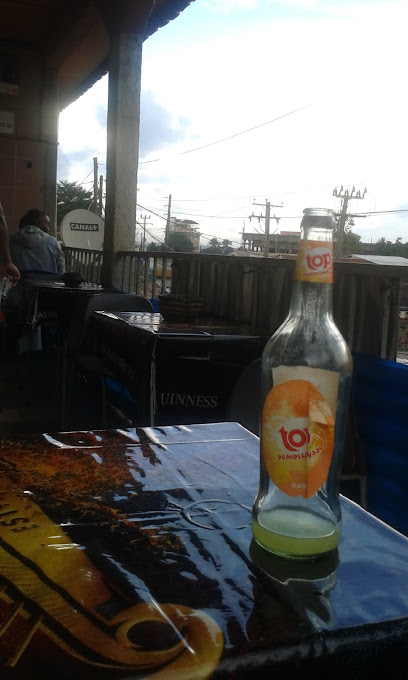
Local Phrases
-
- HelloBong
[bɔŋ] - GoodbyeAdieu
[adjeu] - YesIyo
[ijo] - NoTchop
[tʃɔp] - Please/You're welcomeS'il vous plait
[sil vu plɛ] - Thank youMerci
[mɛrsi] - Excuse me/SorryPardon
[paʁdɔ̃] - How are you?Comment ça va?
[kɔmɑ̃ sa va] - Fine. And you?Ça va. Et toi?
[sa va e twa] - Do you speak English?Tu parles anglais?
[ty paʁl ɑ̃ɡlɛ] - I don't understandJe ne comprends pas
[ʒə nə kɔ̃pʁɑ̃ pa]
- HelloBong
-
- I'd like to see the menu, pleaseJe voudrais voir le menu, s'il vous plait
[ʒə vu'drɛ vwaʁ lə məny, sil vu plɛ] - I don't eat meatJe ne mange pas de viande
[ʒə nə mɑ̃ʒ pa də vjɑ̃d] - Cheers!Santé!
[sɑ̃te] - I would like to pay, pleaseJe voudrais payer, s'il vous plait
[ʒə vu'drɛ peje, sil vu plɛ]
- I'd like to see the menu, pleaseJe voudrais voir le menu, s'il vous plait
-
- Help!Au secours!
[o səkuʁ] - Go away!Allez-vous en!
[alɛ vu ɛ̃] - Call the Police!Appelez la police!
[aple la polis] - Call a doctor!Appelez un médecin!
[aple œ̃n medəsɛ̃] - I'm lostJe suis perdu
[ʒə sɥi pɛʁdy] - I'm illJe suis malade
[ʒə sɥi malad]
- Help!Au secours!
-
- I'd like to buy...Je voudrais acheter...
[ʒə vu'drɛ aʃte] - I'm just lookingJe regarde juste
[ʒə ʁəɡaʁd ʒyst] - How much is it?Combien ça coûte?
[kɔ̃bjɛ̃ sa kut] - That's too expensiveC'est trop cher
[se tʁo ʃe] - Can you lower the price?Pouvez-vous baisser le prix?
[puve vu bɛse lə pʁi]
- I'd like to buy...Je voudrais acheter...
-
- What time is it?Quelle heure est-il?
[kɛl œʁ ɛt il] - It's one o'clockIl est une heure
[il ɛt yn œʁ] - Half past (10)Dix et demi
[di e dəmi] - MorningMatin
[matɛ̃] - AfternoonAprès-midi
[apʁɛ mi di] - EveningSoir
[swaʁ] - YesterdayHier
[jɛʁ] - TodayAujourd'hui
[oʒuʁdui] - TomorrowDemain
[dəmɛ̃] - 1Un
[œ̃] - 2Deux
[dø] - 3Trois
[tʁwa] - 4Quatre
[katʁ] - 5Cinq
[sɛ̃k] - 6Six
[si] - 7Sept
[sɛt] - 8Huit
[ɥit] - 9Neuf
[nœf] - 10Dix
[di]
- What time is it?Quelle heure est-il?
-
- Where's a/the...?Où est le/la...?
[u ɛ lə la] - What's the address?Quelle est l'adresse?
[kɛl ɛt ladrɛs] - Can you show me (on the map)?Pouvez-vous me montrer (sur la carte)?
[puvre vu mə mɔ̃ʁe syʁ la kaʁt] - When's the next (bus)?Quand est le prochain (bus)?
[kɑ̃ ɛ lə pʁoʃɛ̃ bys] - A ticket (to ....)Un billet (pour ....)
[œ̃ bijɛ (puʁ)]
- Where's a/the...?Où est le/la...?
History of Bastos
-
Bastos, initially a sparsely populated area, began to develop during the German colonial period in the late 19th century. The neighborhood's name is derived from the term 'Bastos' meaning 'site of the old fort', reflecting its strategic significance. The Germans established administrative and military outposts, which laid the groundwork for future urban development.
-
Following World War I, Cameroon was mandated to France, and Bastos became a focal point for French administrative and diplomatic presence. This period saw significant infrastructure development, including the construction of roads and government buildings, which helped shape its identity. The neighborhood established itself as a residential area for expatriates and civil servants.
-
Bastos evolved into a vibrant cultural hub over the decades, attracting a diverse population from various ethnic groups across Cameroon. The neighborhood is known for its blend of traditional and modern influences, with bustling markets, local eateries, and community events that celebrate Cameroonian heritage.
-
In the years leading up to independence in 1960, Bastos became a center for political activism and discourse. Activists and leaders frequently gathered in the area to strategize and organize movements, reflecting its importance in the fight for Cameroon's sovereignty. The neighborhood's political legacy continues to influence contemporary governance and community engagement.
-
In recent decades, Bastos has witnessed rapid urbanization, with the growth of modern amenities, upscale residences, and embassies. This transformation has attracted a cosmopolitan population, including diplomats, business professionals, and expatriates. The area is now recognized for its vibrant nightlife, art galleries, and cultural festivals that showcase the rich tapestry of Cameroonian life.
Bastos Essentials
-
Bastos is centrally located in Yaoundé, making it accessible from various neighbourhoods. Taxis are the most common mode of transport, and you can easily hail one from the street or book through local ride-hailing apps. Buses and minibuses (known as 'bush taxis') also connect Bastos to other parts of the city, but they may be crowded and less comfortable. If you're coming from the airport, consider taking a taxi directly to your accommodation in Bastos, as it is approximately 30 minutes away, depending on traffic.
-
Bastos is a walkable neighbourhood, and many attractions are within a short distance of each other. Taxis are readily available and a convenient option for longer distances. While public transport is less developed in this area, you can use local buses for a true local experience. Bicycles are not commonly used for transport in Bastos, but you may find bicycle rentals in nearby areas. Be cautious while using motorbikes, as traffic can be unpredictable.
-
Bastos is generally safe for tourists, but like any urban area, it is important to stay aware of your surroundings. Avoid walking alone at night, particularly in less crowded areas. Petty crime, such as pickpocketing, can occur, especially in busy marketplaces and public transport. Areas to avoid include the outskirts of Bastos after dark and any isolated streets. Always keep your belongings secure and do not flash valuables.
-
In case of an emergency, dial 112 for police assistance and 150 for medical emergencies. It is advisable to have travel insurance that covers medical situations. Local hospitals and clinics are available, but language barriers may exist, so having a translator app can be helpful. For minor health issues, pharmacies in Bastos have over-the-counter medications. Familiarize yourself with the location of your nearest hospital or clinic upon arrival.
-
Fashion: Do dress modestly, particularly in public places. Light, breathable clothing is advisable due to the warm climate. Avoid wearing overly revealing attire. Religion: Do respect local customs; when visiting religious sites, dress appropriately and be mindful of local practices. Public Transport: Do be polite and offer your seat to the elderly or pregnant women. Don’t eat or drink on public transport. Greetings: Do greet people with a friendly handshake and a smile. In more traditional settings, a slight bow of the head is appreciated. Eating & Drinking: Do try local dishes and accept invitations to share a meal. Don’t waste food or refuse hospitality, as it can be seen as rude.
-
To experience Bastos like a local, visit the bustling markets where you can find fresh produce and local crafts. Engage with vendors and practice your French or local dialect, as this is often met with warmth. Explore the local art scene by visiting galleries that showcase Cameroonian artists. Don't miss the vibrant nightlife; check out local bars and music venues for live performances. Try the street food, especially grilled meats and local snacks, but ensure that the food is fresh and cooked in front of you for safety.
Trending Landmarks in Bastos
Nearby Cities to Bastos
-
Things To Do in Bafia
-
Things To Do in Ebolowa
-
Things To Do in Edea
-
Things To Do in Douala
-
Things To Do in Bitam
-
Things To Do in Kribi
-
Things To Do in Nkongsamba
-
Things To Do in Bafoussam
-
Things To Do in Foumban
-
Things To Do in Dschang
-
Things To Do in Mbouda
-
Things To Do in Tiko
-
Things To Do in Buea
-
Things To Do in Bertoua
-
Things To Do in Limbe





